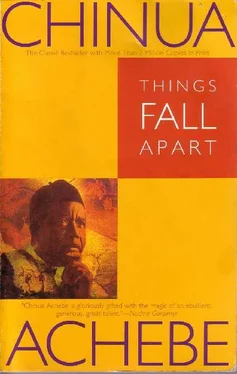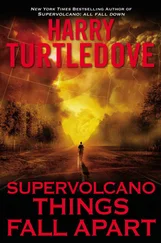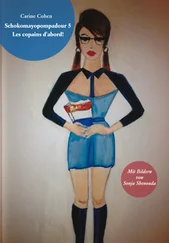Chinua Achebe - Things Fall Apart
Здесь есть возможность читать онлайн «Chinua Achebe - Things Fall Apart» весь текст электронной книги совершенно бесплатно (целиком полную версию без сокращений). В некоторых случаях можно слушать аудио, скачать через торрент в формате fb2 и присутствует краткое содержание. Город: New York, Год выпуска: 1994, Издательство: A DIVISION OF RANDOM HOUSE, INC., Жанр: Контркультура, на английском языке. Описание произведения, (предисловие) а так же отзывы посетителей доступны на портале библиотеки ЛибКат.
- Название:Things Fall Apart
- Автор:
- Издательство:A DIVISION OF RANDOM HOUSE, INC.
- Жанр:
- Год:1994
- Город:New York
- ISBN:нет данных
- Рейтинг книги:2 / 5. Голосов: 2
-
Избранное:Добавить в избранное
- Отзывы:
-
Ваша оценка:
- 40
- 1
- 2
- 3
- 4
- 5
Things Fall Apart: краткое содержание, описание и аннотация
Предлагаем к чтению аннотацию, описание, краткое содержание или предисловие (зависит от того, что написал сам автор книги «Things Fall Apart»). Если вы не нашли необходимую информацию о книге — напишите в комментариях, мы постараемся отыскать её.
—W. B. Yeats, "The Second Coming"
Things Fall Apart — читать онлайн бесплатно полную книгу (весь текст) целиком
Ниже представлен текст книги, разбитый по страницам. Система сохранения места последней прочитанной страницы, позволяет с удобством читать онлайн бесплатно книгу «Things Fall Apart», без необходимости каждый раз заново искать на чём Вы остановились. Поставьте закладку, и сможете в любой момент перейти на страницу, на которой закончили чтение.
Интервал:
Закладка:
Ekwefi did as she was asked. As soon as she became pregnant she went to live with her old mother in another village. It was there that her third child was born and circum cised on the eighth day. She did not return to Okonkwo's compound until three days before the naming ceremony. The child was called Onwumbiko.
Onwumbiko was not given proper burial when he died. Okonkwo had called in another medicine man who was famous in the clan for his great knowledge about ogbanje children. His name was Okagbue Uyanwa. Okagbue was a very striking figure, tall, with a full beard and a bald head. He was light in complexion and his eyes were red and fiery. He always gnashed his teeth as he listened to those who came to consult him. He asked Okonkwo a few questions about the dead child. All the neighbors and relations who had come to mourn gathered round them.
"On what market-day was it born?" he asked.
" Oye ," replied Okonkwo.
"And it died this morning?"
Okonkwo said yes, and only then realized for the first time that the child had died on the same market-day as it had been born. The neighbors and relations also saw the coincidence and said among themselves that it was very significant.
"Where do you sleep with your wife, in your obi or in her own hut?" asked the medicine man.
"In her hut."
"In future call her into your obi ."
The medicine man then ordered that there should be no mourning for the dead child. He brought out a sharp razor from the goatskin bag slung from his left shoulder and began to mutilate the child. Then he took it away to bury in the Evil Forest, holding it by the ankle and dragging it on the ground behind him. After such treatment it would think twice before coming again, unless it was one of the stubborn ones who returned, carrying the stamp of their mutilation—a missing finger or perhaps a dark line where the medicine man's razor had cut them.
By the time Onwumbiko died Ekwefi had become a very bitter woman. Her husband's first wife had already had three sons, all strong and healthy. When she had borne her third son in succession, Okonkwo had slaughtered a goat for her, as was the custom. Ekwefi had nothing but good wishes for her. But she had grown so bitter about her own chi that she could not rejoice with others over their good fortune. And so, on the day that Nwoye's mother celebrated the birth of her three sons with feasting and music, Ekwefi was the only person in the happy company who went about with a cloud on her brow. Her husband's wife took this for malevolence, as husbands' wives were wont to. How could she know that Ekwefi's bitterness did not flow outwards to others but inwards into her own soul,– that she did not blame others for their good fortune but her own evil cfci who denied her any?
At last Ezinma was born, and although ailing she seemed determined to live. At first Ekwefi accepted her, as she had accepted others—with listless resignation. But when she lived on to her fourth, fifth and sixth years, love returned once more to her mother, and, with love, anxiety. She determined to nurse her child to health, and she put all her being into it. She was rewarded by occasional spells of health during which Ezinma bubbled with energy like fresh palm-wine. At such times she seemed beyond danger. But all of a sudden she would go down again. Everybody knew she was an ogbanje . These sudden bouts of sickness and health were typical of her kind. But she had lived so long that perhaps she had decided to stay. Some of them did become tired of their evil rounds of birth and death, or took pity on their mothers, and stayed. Ekwefi believed deep inside her that Ezinma had come to stay. She believed because it was that faith alone that gave her own life any kind of meaning. And this faith had been strengthened when a year or so ago a medicine man had dug up Ezinma's iyi-uwa . Everyone knew then that she would live because her bond with the world of ocjbanje had been broken. Ekwefi was reassured. But such was her anxiety for her daughter that she could not rid herself completely of her fear. And although she believed that the iyi-uwa which had been dug up was genuine, she could not ignore the fact that some really evil children sometimes misled people into digging up a specious one.
But Ezinma's iyi-uwa had looked real enough. It was a smooth pebble wrapped in a dirty rag. The man who dug it up was the same Okagbue who was famous in all the clan for his knowledge in these matters. Ezinma had not wanted to cooperate with him at first. But that was only to be expected. No ogbanje would yield her secrets easily, and most of them never did because they died too young—before they could be asked questions.
"Where did you bury your iyi-uwa ?" Okagbue had asked Ezinma. She was nine then and was just recovering from a serious illness.
"What is iyi-uwa ?" she asked in return.
"You know what it is. You buried it in the ground somewhere so that you can die and return again to torment your mother."
Ezinma looked at her mother, whose eyes, sad and pleading, were fixed on her.
"Answer the question at once," roared Okonkwo, who stood beside her. All the family were there and some of the neighbors too.
"Leave her to me," the medicine man told Okonkwo in a cool, confident voice. He turned again to Ezinma. "Where did you bury your iyi-uwa ?"
"Where they bury children," she replied, and the quiet spectators murmured to themselves.
"Come along then and show me the spot," said the medicine man.
The crowd set out with Ezinma leading the way and Okagbue following closely behind her. Okonkwo came next and Ekwefi followed him. When she came to the main road, Ezinma turned left as if she was going to the stream.
"But you said it was where they bury children?" asked the medicine man.
"No," said Ezinma, whose feeling of importance was manifest in her sprightly walk. She sometimes broke into a run and stopped again suddenly. The crowd followed her silently. Women and children returning from the stream with pots of water on their heads wondered what was happening until they saw Okagbue and guessed that it must be something to do with ocjbanje . And they all knew Ekwefi and her daughter very well.
When she got to the big udala tree Ezinma turned left into the bush, and the crowd followed her. Because of her size she made her way through trees and creepers more quickly than her followers. The bush was alive with the tread of feet on dry leaves and sticks and the moving aside of tree branches. Ezinma went deeper and deeper and the crowd went with her. Then she suddenly turned round and began to walk back to the road. Everybody stood to let her pass and then filed after her.
"If you bring us all this way for nothing I shall beat sense into you," Okonkwo threatened.
"1 have told you to let her alone. 1 know how to deal with ] them," said Okagbue.
Ezinma led the way back to the road, looked left and right and turned right. And so they arrived home again.
"Where did you bury your iyi-uwa ?" asked Okagbue when Ezinma finally stopped outside her father's obi . Okagbue's voice was unchanged. It was quiet and confident.
"It is near that orange tree," Ezinma said.
"And why did you not say so, you wicked daughter of Akalogoli?" Okonkwo swore furiously. The medicine man ignored him.
"Come and show me the exact spot," he said quietly to Ezinma.
"It is here," she said when they got to the tree.
"Point at the spot with your finger," said Okagbue.
"It is here," said Ezinma touching the ground with her finger. Okonkwo stood by, rumbling like thunder in the rainy season.
"Bring me a hoe," said Okagbue.
'When Ekwefi brought the hoe, he had already put aside his goatskin bag and his big cloth and was in his underwear, a long and thin strip of cloth wound round the waist like a belt and then passed between the legs to be fastened to the belt behind. He immediately set to work digging a pit where Ezinma had indicated. The neighbors sat around watching the pit becoming deeper and deeper. The dark top soil soon gave way to the bright red earth with which women scrubbed the floors and walls of huts. Okagbue worked tirelessly and in silence, his back shining with perspiration. Okonkwo stood by the pit. He asked Okagbue to come up and rest while he took a hand. But Okagbue said he was not tired yet.
Читать дальшеИнтервал:
Закладка:
Похожие книги на «Things Fall Apart»
Представляем Вашему вниманию похожие книги на «Things Fall Apart» списком для выбора. Мы отобрали схожую по названию и смыслу литературу в надежде предоставить читателям больше вариантов отыскать новые, интересные, ещё непрочитанные произведения.
Обсуждение, отзывы о книге «Things Fall Apart» и просто собственные мнения читателей. Оставьте ваши комментарии, напишите, что Вы думаете о произведении, его смысле или главных героях. Укажите что конкретно понравилось, а что нет, и почему Вы так считаете.












